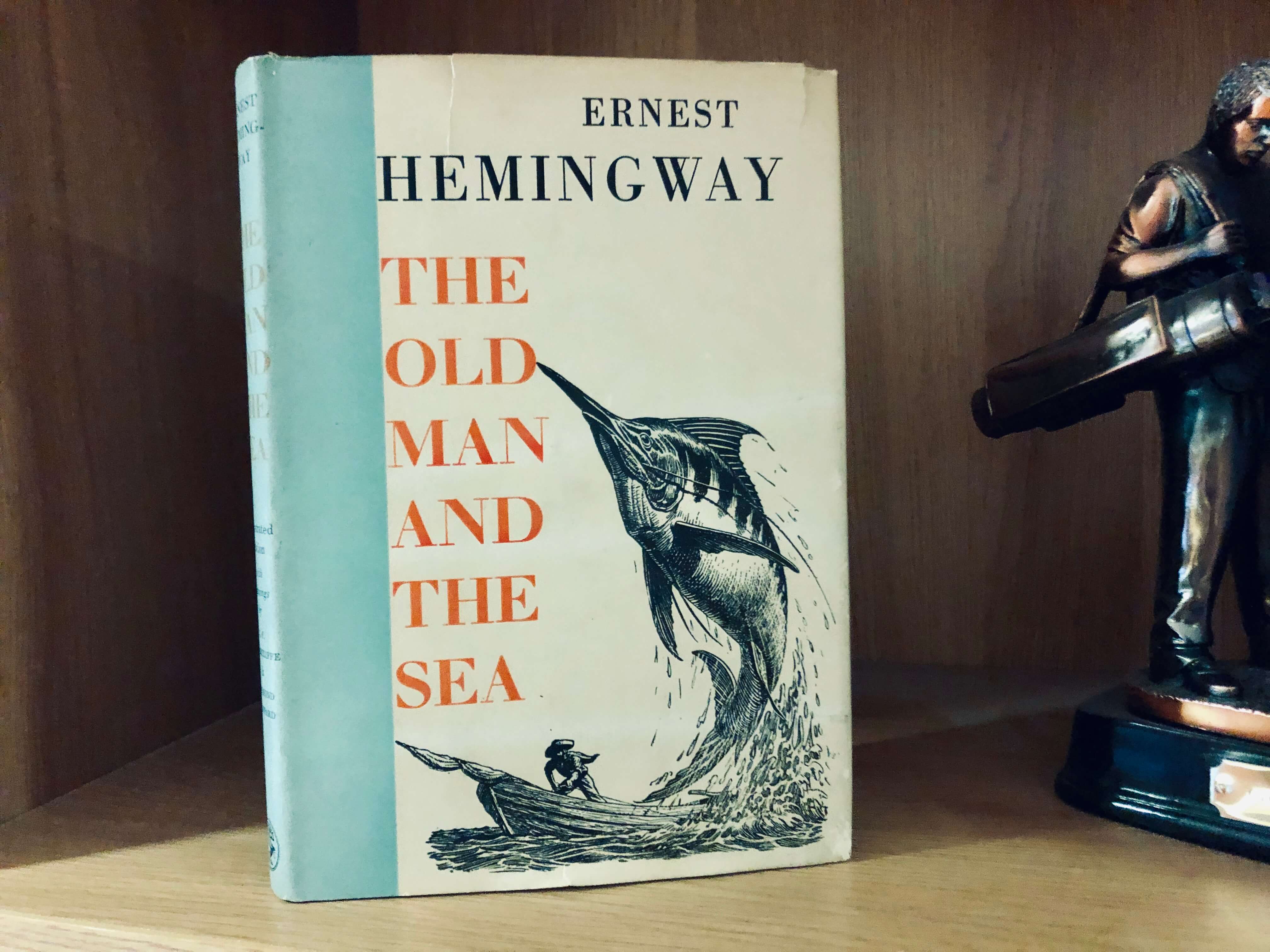Life’s too short to drink bad wine, have bad sex, and read bad books.
I’ve always hated the 5-star ranking system.
The 10-point ranking scale, like IMDB use, isn’t much better.
I’m also suspicious of rave book reviews.
I stopped watching Booktube videos because every single book review was clearly paid for.
The reviewer would gush over the latest book, piling on lavish acclaims, leading me to buy the book.
And what happened when I read the book?
The books were bland at best and I felt betrayed.
So I found myself nodding along when I read George Orwell’s essay ‘In Defence of the Novel’.
Orwell quotes a book review from the Sunday Times that reads: ‘If you can read this book and not shriek with delight, your soul is dead.’
Orwell then says:
That or something like it is now being written about every novel published, as you can see by studying the quotes on the blurbs. For anyone who takes the Sunday Times seriously, life must be one long struggle to catch up. Novels are being shot at you at the rate of fifteen a day, and every one of them an unforgettable masterpiece which you imperil your soul by missing. It must make it so difficult to choose a book at the library, and you must feel so guilty when you fail to shriek with delight.
This is what causes bookworms to burn out.
Never-ending TBR lists filled with books that should make you shriek with delight, but don’t.
You’re in a constant state of playing catch-up and never actually rewarded by what you really want:
You want a damn good read.
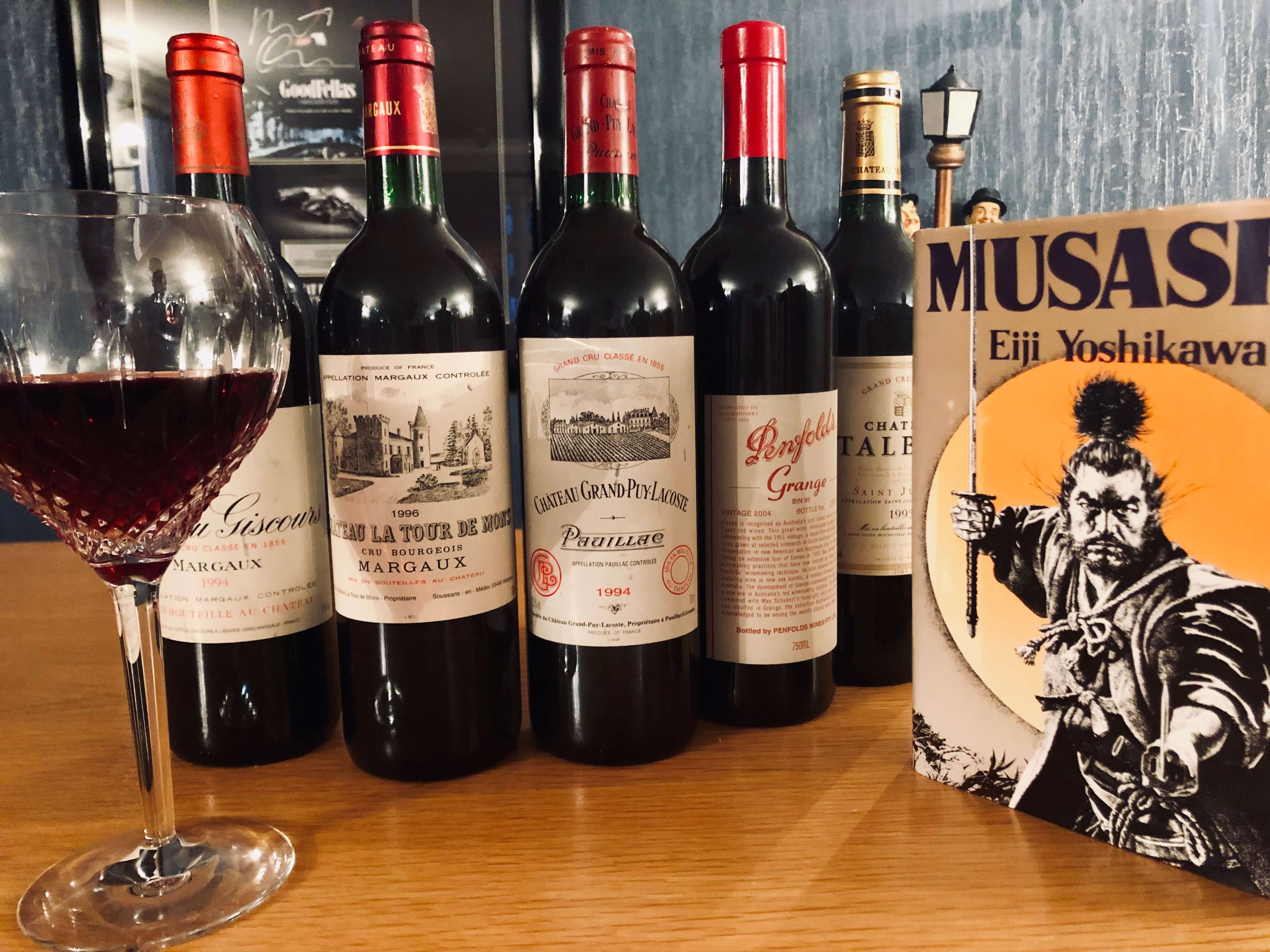
Good books are like fine wine. But reviewers calling a book Chateau Lafite when it’s Sauvignon Blanc from a box is leaving a bad taste in my mouth.
But who can you trust when it comes to book reviews?
As Orwell says, compliments on a book from a book reviewer ‘are about as valuable as the smile of a prostitute.’
The problem, Orwell says, is when it comes to reviewing books, book reviewers probably have favourite authors that include Dickens, Dostoyevsky, and Austen.
So when it comes to the contemporary novel, they automatically have to lower their standards because the chances that something published in the last month will compete with the heavyweights that stood the test of time is minuscule.
As Orwell says:
To apply a decent standard to the ordinary run of novels is like weighing a flea on a spring-balance intended for elephants.
This is why I loathe the Man Booker Prize.
A bunch of pretentious writers have paid great sums of money to get equally pretentious reviews that put diversity over merit and claim every book shortlisted is the next fucking Tolstoy, when really it’s little more that a trite regurgitation of a regurgitation.
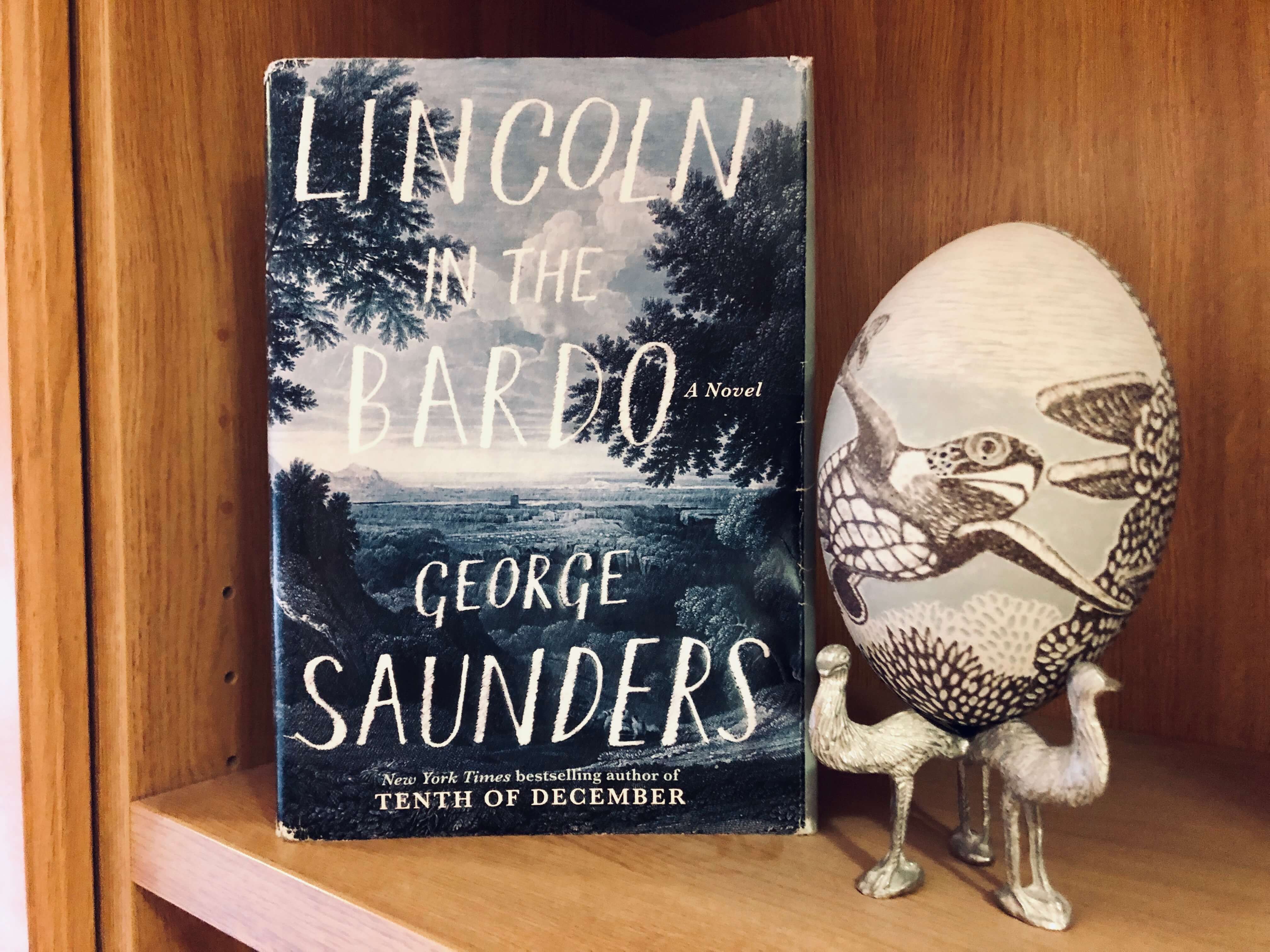
At least the Man Booker Prize people got Lincoln in the Bardo right. This is a perfect book, which will secure George Saunders in the same ranks as Herman Melville and Harper Lee. Let’s hope he keeps producing fine vintages.
Orwell puts the problem perfectly:
It is possible for a novel of real merit to escape notice, merely because it has been praised in the same terms as tripe.
My Oxford University English Literature degree was one big circle-jerk of pretentiousness.
So when it came time to write for Cherwell, the Oxford student newspaper, and I was given a novel to review by one of the alumni, I found myself surrounded by “professionals” who wished to brown-nose the author and deconstruct the post-modern ingenuity of what was essentially an extremely flawed piece of substandard pulp fiction.
Orwell says:
It would be a good thing if more novel-reviewing were done by amateurs. A man who is not a practised writer but has just read a book which has deeply impressed him is more likely to tell you what it is about than a competent but bored professional.
This has been my aesthetic and philosophy as a reviewer from the start.
It’s what makes my book reviews the best on the internet.
I have a professional reviewer’s toolkit, but I decided to throw it down the toilet where it belongs and engage with books – BOOKS! NOT TEXTS – on the level of the amateur.
This resulted in me trashing the author in my book review and feeling exceptionally guilty about it.
I only gave a negative public book review one other time and that was a direct reaction to reading a book that had been exceptionally hyped by the booktube community but turned out dull. And even then I tried to reign in my negativity.
I decided after that I would only focus on reviewing books that were nothing less of amazing. Books that hit a certain threshold for me.
But how do you rate books?
We grade them!
I took the James Suckling Wine Appreciation MasterClass recently and I loved learning about the 100-point wine rating system.
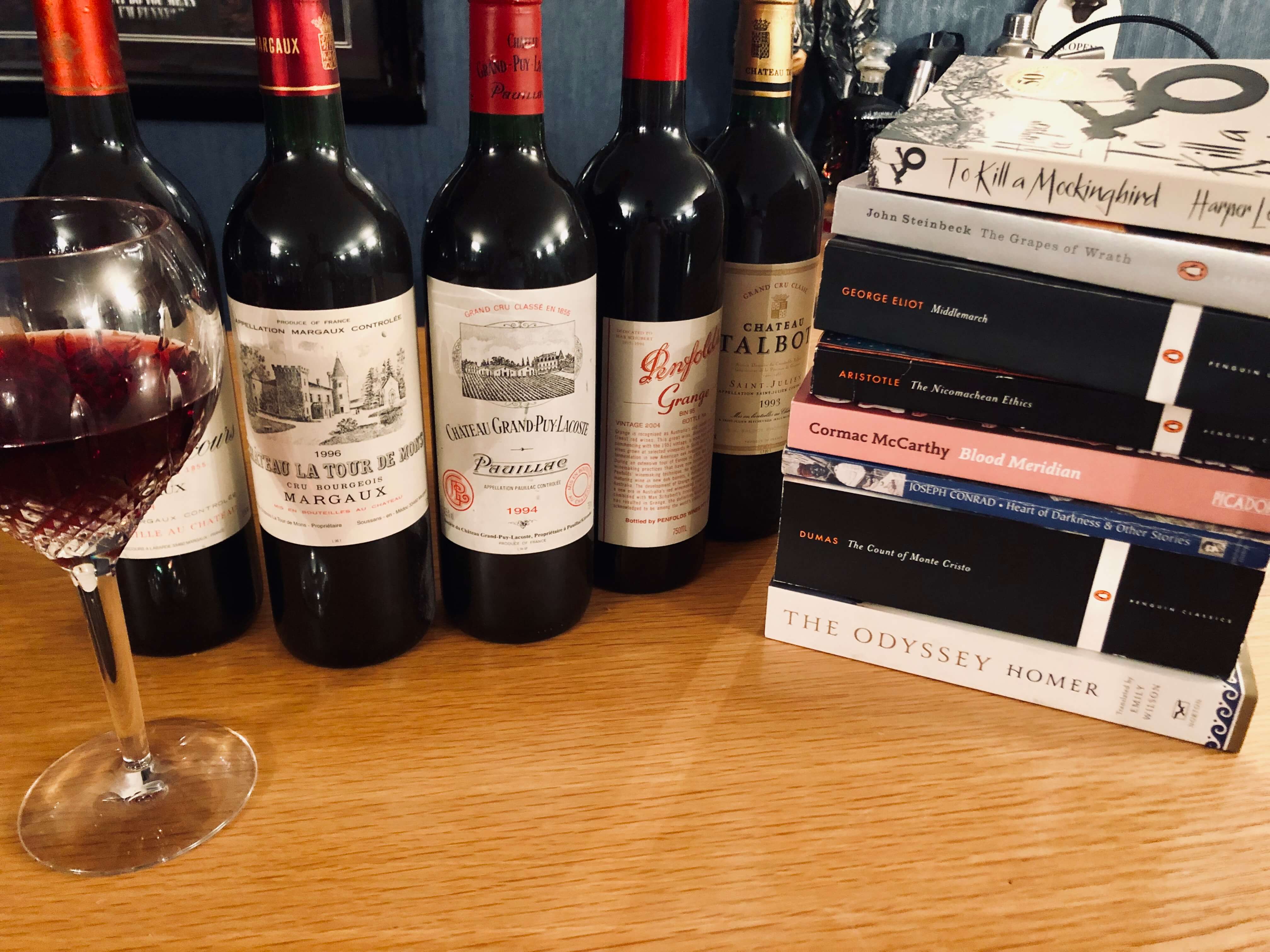
Middlemarch, Blood Meridian, and The Grapes of Wrath are my fine wines. What are yours?
We assign a point category a grade, just like you would in school.
If you rate a wine less than a B, don’t bother with it.
Life’s too short to drink bad wine (and read bad books).
When rating wines, you’re advised to not just consider intensity, balance, and complexity of individual elements, but how they interact with each other.
For example, if a wine is very full-bodied, does it have enough acidity for it to retain a sense of freshness? If a wine is quite tannic, does it have the flavor depth to back up the muscular structure?
The 100-point system for ranking wides breaks down like this:
- 15 points for the colour of the wine
- 25 points for the aroma of the wine
- 25 points for the palate or structure
- 35 points for overall quality
Then you can see what constitutes an A-grade wine all the way through to C.
We can do the same for rating books!
Orwell advises a similar grading system:
The first necessity is some method of grading. Great numbers of novels never ought to be mentioned at all (imagine for instance the awful effects on criticism if every serial in Peg’s Paper had to be solemnly reviewed!), but even the ones that are worth mentioning belong to quite different categories. Raffles is a good book, and so is The Island of Dr. Moreau, and so is La Chartreuse de Parme, and so is Macbeth; but they are ‘good’ at very different levels: Similarly, If Winter Comes and The Well-Beloved and An Unsocial Socialist and Sir Launcelot Greaves are all bad books, but at different levels of ‘badness.’ This is the fact that he hack-reviewer has made it his special business to obscure. It ought to be possible to devise a system, perhaps quite a rigid one, of grading novels into classes A, B, C and so forth, so that whether a reviewer praised or damned a book, you would at least know how seriously he meant it to be taken. As for the reviewers, they would have to be people who really cared for the art of the novel (and that means, probably, neither highbrows nor lowbrows nor midbrows), people interested in technique and still more interested in discovering what a book is about.
Orwell didn’t go into making his grading system rigid, but we can adapt Suckling’s 100-point wine rating scale and apply it to books.
- 15 points for the writing itself
- 25 points for the characterisation
- 25 points for the story and structure
- 35 points for overall quality
This is how you grade books.
- 100 points (A) = Books you fall in love with that touched your heart and soul. You treasure the physical copies of these books, have been through many copies of these books, or simply rush out to buy several copies to give to friends and family. You will remember these books for the rest of your life. These books will always be a background presence in your life and you use them as frame of reference for everything. 100-point books are perfect books, with the ideal combination of beautiful writing, theme, characterisation, psychological understanding, mood, and ideals.
- 95-99 points (A) = Books that make you want to block out the world, read the whole thing cover to cover, and hunker down to get lost in its beauty or power. They are classic books that ranks as the best in the world history of literature. They rank extremely highly against all criteria of literary merit, while not quite attaining the level of flawlessness of 100-point books.
- 90-94 points (A) = Books that you can’t wait to continue reading. You think about reading another chapter later that night, or look forward to reading it whenever you get a chance, and you’ll keep reading even beyond allotted chapter or time limitations. These are outstanding books that have no real shortcomings but could be even more exciting in some areas.
- 85-89 points = (B) Books that are well-crafted and enjoyable, but fall slightly short in some areas. Alternatively, they may be excellent otherwise but miss the mark in one respect.
- 80-84 points (B) = Books that have no technical faults (glaring plot holes, inconsistent/unbelievable characterisation), but have a number of characteristics that could interfere with one’s enjoyment.
- 70-79 points (C) = Books that are borderline unreadable and show serious faults. Best avoided as “life is too short!”
Then when it comes to time grade, rank, and review your book, take a leaf out of Kurt Vonnegut’s book:
The grades should be childishly selfish and impudent measures of your own joy or lack of it. I don’t care what grades you give. I do insist that you like some stories better than others.
For me, here are my personal 100-point A-grade books:
- Man’s Search for Meaning (review)
- The Stories of Anton Chekhov
- Lincoln in the Bardo (review)
- Norwegian Wood (review)
- The Old Man and the Sea
- Much Ado About Nothing
- Frankenstein (review)
- Meditations (review)
- Great Expectations
- Heart of Darkness
- The Corrections
- Moby Dick
- King Lear
- Life of Pi
These are still A-grade books, but in the 95-99 point category:
- Letters to a Young Poet (review)
- Voices from Chernobyl
- The Prophet (review)
- Fahrenheit 451
- Dharma Bums
- War Music
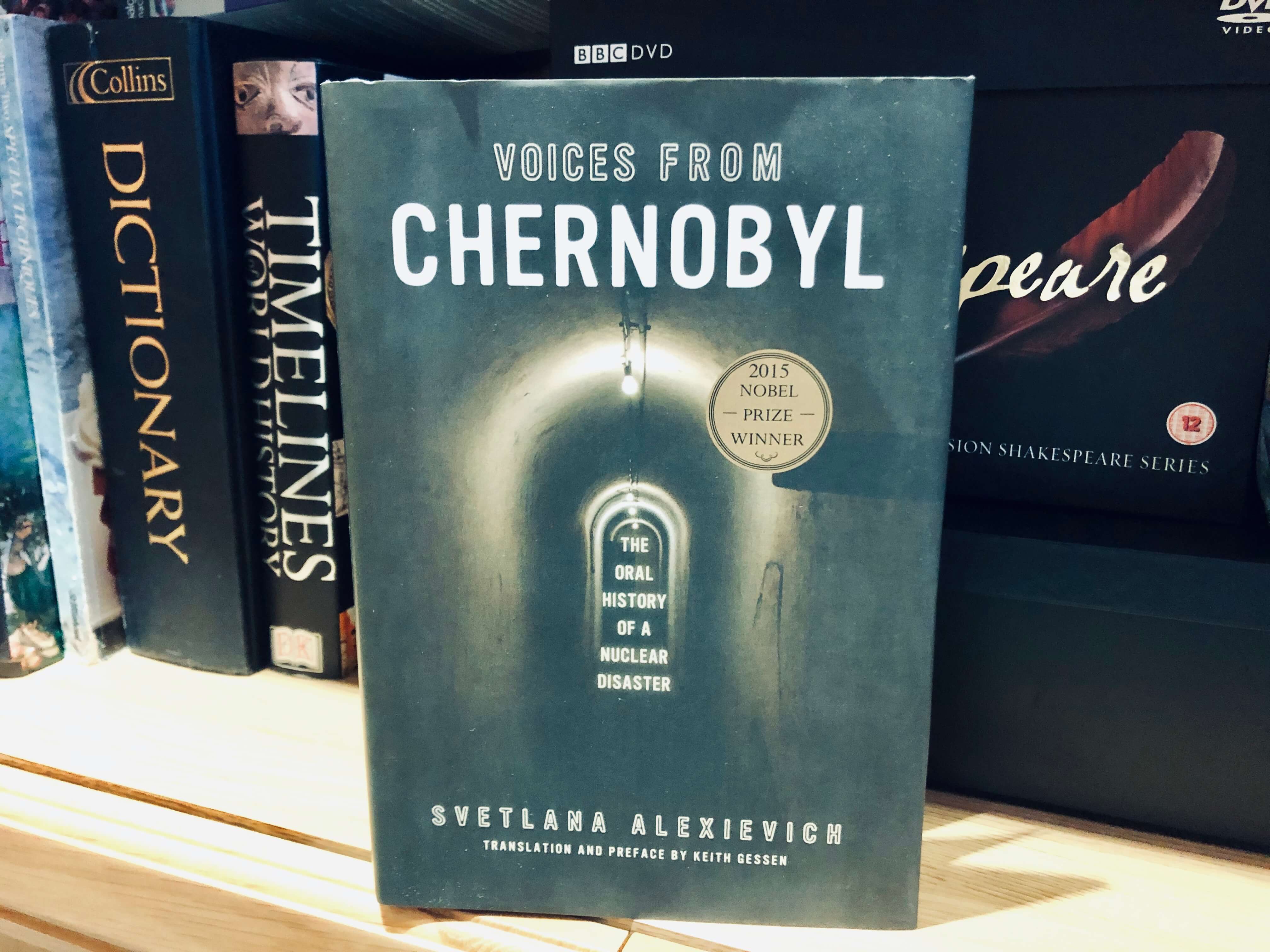
Svetlana Alexievich is one of my most valued Nobel Prize winning authors. Check out Voices From Chernobyl.
Still A-grade books but in the 90-94 point category:
- Stephen King’s Misery, The Green Mile, The Stand, 11/22/63, The Shining
- Jeff Lemire’s Gideon Falls, Black Hammer, Trillium, Royal City (reviews)
- Neil Gaiman’s Norse Mythology, American Gods, and Neverwhere
- Terry Pratchett’s Men At Arms, Mort, and Small Gods
To me, Stephen King and Neil Gaiman are producers of A-grade books just like Shakespeare produces A-grade plays and Christopher Logue produces A-grade poems.
But if Stephen King or Neil Gaiman were wines, they would be rich 1994 Pauillac’s from the Chateau Grand Puy Lacoste or perhaps a delicious Penfolds Grange of the 2004 vintage, whereas Shakespeare, Chekhov, and Melville would be the 1787 Chateau Lafite’s and 1992 Screaming Eagle Cabernet’s of the literary world.
The great thing about books is everyone can access the literary equivalent to Chateau Lafite.
The wine is over a hundred grand, but the works of Shakespeare, Dante, and Homer are free.
Of course, even if you had the money, you wouldn’t want to sip Lafite every night. Sometimes you want a really robust Malbec that pairs perfectly with your steak.
And although life is certainly too short to drink bad wines and read bad books, from time-to-time you might want to pick up some barely readable pulp that is the literary equivalent of box wine.
So that’s how I rate my books.
How do you rate your books?
Tell me what are the 100-point A-grade books for you?
What books are flawless to you? What books changed your life? What books are your perfect vintage?
